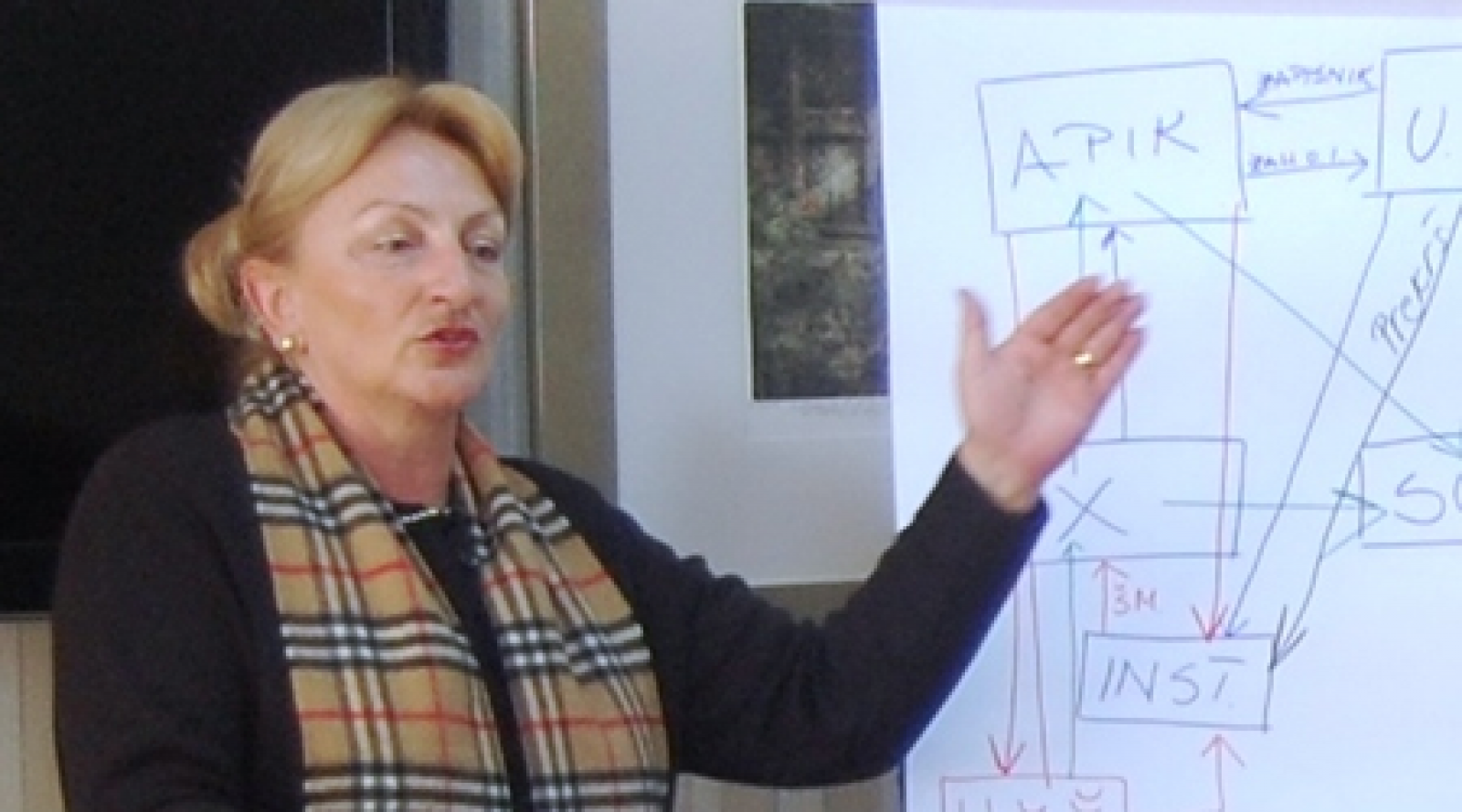
SHARE
Violent protests rocked Bosnia-Herzegovina in early February—the worst since the war ended in 1996. They started in the industrial city of Tuzla—hit by sudden job losses over factory closures—and quickly spread to the capital, Sarajevo, as well as other cities. Thousands of people demonstrated against government inaction over longstanding—and growing—levels of unemployment, corruption and poverty. According to the World Bank, youth unemployment nearly tops 60 percent.
The protests are a clarion call to the country’s political leaders to address the economic and social needs of citizens, and to compromise on constitutional and government reform needed for Bosnia-Herzegovina to catch up to its neighbors on the long road to European integration.
Most politicians, unfortunately, are prevaricating rather than responding. While local officials have resigned in the protests’ wake, some of the country’s top leaders have mischaracterized the grievances fueling the protests as partisan or ethnic in nature. They are neither. Citizens—regardless of ethnic identity and political persuasion—are disaffected from their government, which has not provided the leadership, policies, and resources needed to improve their lives.
One group of politicians, however, has been paying attention—and acting on what they hear. Stemming from a 2010 study mission to Washington, D.C., organized by NDI and subsequently supported by the Institute back home, seven senior political figures from as many parties and representing the Bosniak, Croat and Serbian communities – formed the Democratic Initiative For Europe to lead on reforms that make government function in the public’s interest. In 2012, the group focused on election reform, promoting enhanced candidate financial disclosure requirements and strengthening gender quota provisions. They also designed and promoted a party code of conduct for local elections.
“Our study mission to the U.S. has had far-reaching consequences. Our group’s numerous results show that it is possible to reach compromise between political parties…giving us hope for future agreements and the development of a common country based on compromise and respect for the benefit of all sides,” --Marinko Cavara.
“This is a positive example of how joint work and dialogue can help us in achieving a common goal regardless of our political, ethnic, or territorial differences,” --Lazar Prodanovic
In 2013, the group took on corruption, producing three pieces of legislation on legal protections for whistleblowers, improved freedom of access to government information and free public access to the publication of laws. The bills moved quickly through parliament, receiving full support in both houses before unanimous adoption in December. Their implementation will support job creation by improving investor and business confidence.
The passage of this legislation shows that responsive leadership in Bosnia-Herzegovina is possible, despite the country’s complex government structures. This is the first time that parliamentarians of different parties and different ethnic groups have joined forces to propose anti-corruption laws. It’s among very few instances where the state parliament, rather than the government, drafted the legislation, and among only 13 bills passed in 2013—itself a telling number when considering the public protests. The group enlisted the expertise of civic groups and issue experts not only to ascertain the extent to which lack of government information disclosure and whistleblower protection feed corruption, but also in drafting the laws’ provisions—another first. Each member of the group worked caucus backrooms to obtain the support of respective party colleagues.
Funded by the U.S. Agency for International Development and the National Endowment for Democracy, NDI’s work in Bosnia-Herzegovina places a premium on putting politicians and citizens together, through town-hall meetings and public policy discussions, and uses public opinion research to air citizen sentiment continuously. The political leaders of the Democracy Initiative for Europe understand the importance of responding to the public interest, and provide a timely model for other politicians. General elections are due in October.
Read more:
- Women in the Balkans Challenge Norms and Work Together to Push Through Barriers»
- In a Divided Bosnia, a Group of Politicians Sidesteps Gridlock to Cooperate on Reform»
- Debates Gets Parties Focused on Issues Facing Bosnia»
Published Feb. 26, 2014


